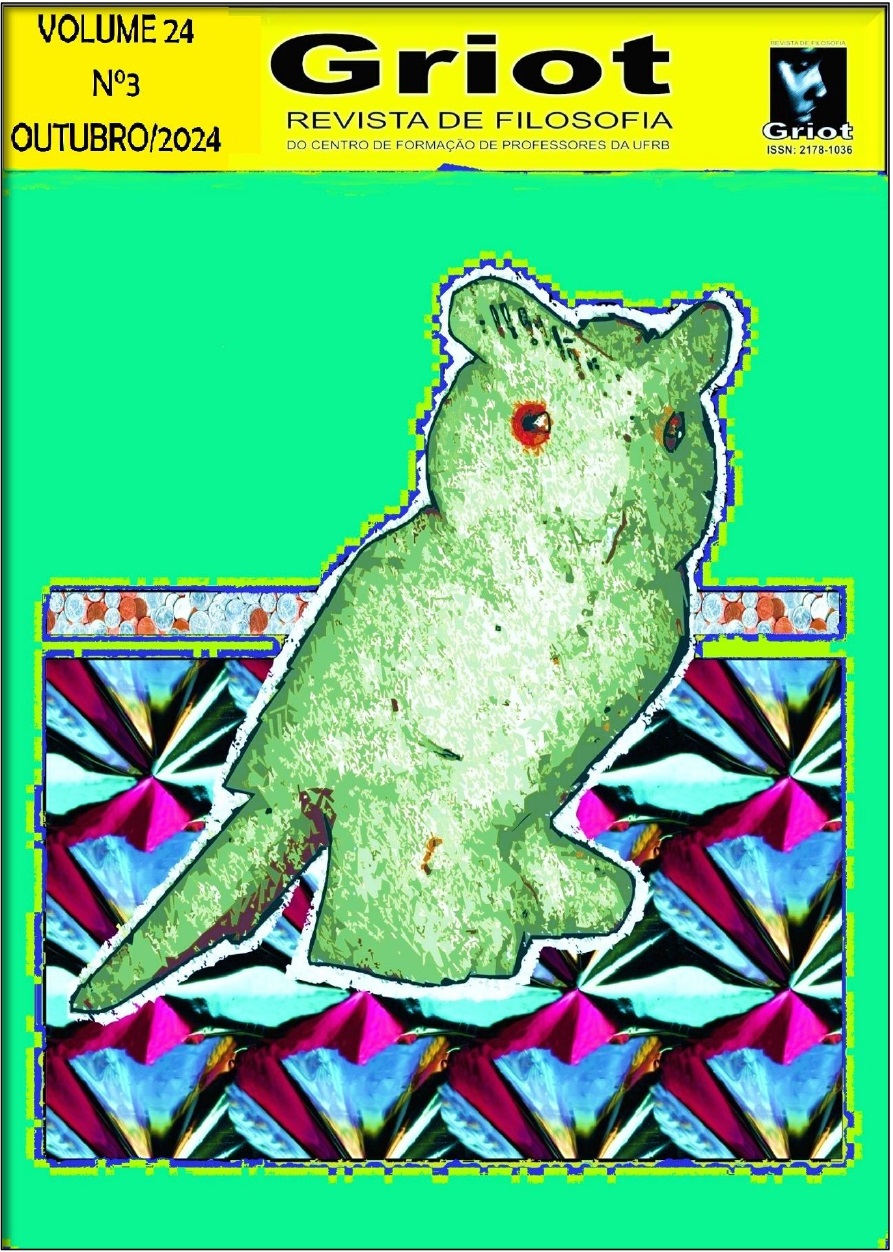Epistemic symmetry and uniqueness thesis: two problems for peer disagreements
DOI:
https://doi.org/10.31977/grirfi.v24i3.4929Keywords:
Epistemic Symmetry. Uniqueness Thesis. Epistemology of Disagreements.Abstract
In this article, I discuss two problematic assumptions in the scenario of peer disagreements: the idealized notion of Epistemic Symmetry and the Uniqueness Thesis. In recent literature on disagreements there is a distinction between real and apparent disagreements, and the main epistemological questions show up only in legitimate cases not in apparent ones. Thus, since an idealized Epistemic Symmetry seems unlikely this would prevent the occurrence of real peer disagreements. Another problematic point is the Uniqueness Thesis, which says that a body of evidence justifies only one proposition or only one doxastic attitude towards a given proposition. However, based on this principle, epistemic peers should converge and not disagree, as they access the same body of evidence. Like this, idealized symmetry and the uniqueness thesis seem not to corroborate the occurrence of real peer disagreements and we should give up at least one of these assumptions. Thus, I offer an argument in favor of the maintenance of the uniqueness thesis and propose a reformulation for the notion of epistemic symmetry.
Downloads
References
BIRO, John. & LAMPERT, Fabio. Peer Disagreement and Evidence of Evidence. Logos & Episteme, v. 9, n. 4, p. 379-402, 2018. Available in: https://www.pdcnet.org/logos-episteme/content/logos-episteme_2018_0009_0004_0379_0402. Accessed on 17th February, 2022.
CHRISTENSEN, David. Disagreement as Evidence: The Epistemology of Controversy. Philosophy Compass, v. 4, n. 5, p. 756-767, 2009. Available in: https://philarchive.org/rec/CHRDAE-2. Accessed on 17 February, 2022.
CHRISTENSEN, David & LACKEY, Jennifer. The Epistemology of Disagreement: New Essays. Oxford: Oxford University Press, 2013.
ELGA, Adam. Reflection and Disagreement. Revista Nous, n. 41, p. 478-502, 2007.
FELDMAN, Richard & WARFIELD, Ted. Disagreement. Oxford: Oxford University Press, 2010.
FELDMAN, Richard. Deep Disagreement, Rational Resolution and Critical Thinking. Informal Logic, v. 25, n. 1, p. 13-23, 2005. Available in: https://philpapers.org/rec/FELDDR. Accessed on 19th April, 2022.
FELDMAN, Richard. Epistemological Puzzles about Disagreement. In: HETHERINGTON, S. (ed.) Epistemology Futures. Oxford: Oxford University Press, 2006a, p. 216-236.
FELDMAN, Richard. Reasonable Religious Disagreement. In: ANTONY, L. (ed.). Philosophers without Gods: Meditations on Atheism and Secular Life. New York: Oxford University Press, 2006b, p. 194-215.
FELDMAN, Richard. Evidentialism, Higher-Order evidence, and Disagreement. Episteme, v. 6, n. 3, p. 294-312, 2009. Available in: https://www.cambridge.org/core/journals/episteme/article/abs/evidentialism-higherorder-evidence-and-disagreement/FEAB79DBDE02329F572D90BFD011E8E1. Accessed on 20th April, 2022.
FRANCES, Bryan. Disagreement. Cambridge: Cambridge University Press, 2014.
FRANCES, Bryan & MATHESON, Jonathan. Disagreement. The Stanford Encyclopedia of Philosophy, 2019. Available in: https://plato.stanford.edu/entries/disagreement/. Accessed on 17th February, 2022.
KELLY, Thomas. The Epistemic Significance of Disagreement. Oxford Studies in Epistemology, v. 1, p. 167-196, 2005. Available in: https://philpapers.org/rec/KELTES. Accessed on 20th Feebruary, 2022.
KELLY, Thomas. Peer Disagreement and High Order Evidence. In: FELDMAN, R. & WARFIELD, T. (eds.). Disagreement. Oxford: Oxford University Press, 2010, p. 111-174.
KELLY, Thomas. Evidence Can Be Permissive. In: STEUP, M., TURRI, J. & SOSA, E. (eds.). Contemporary Debates in Epistemology. Malden: Wiley-Blackwell, 2013, 298-312. LOUGHEED, Kirk. The Epistemic Benefits of Disagreement. Cham: Switzerland, 2020.
MACHUCA, Diego (ed.). Disagreement and Skeptcism. New York: Routledge, 2013.
MATHESON, Jonathan. Disagreement and Epistemic peers. Oxford Handbooks Online, 2015a. DOI: 10.1093oxfordhb9780199935314.013.13.
MATHESON, Jonathan. The Epistemic Significance of Disagreement. Hampshire: Palgrave, 2015b.
ROSA, Luis. Justification and Uniqueness Thesis. Logos & Episteme, v. 3, n. 4, p. 571-577, 2012. Available in: https://philarchive.org/rec/ROSJAT. Accessed on 20th April, 2022.
ROSA, Luis. Uniqueness and Permissiveness in Epistemology. Oxford bibliographies, 2018. Available in: https://www.oxfordbibliographies.com/display/document/obo-9780195396577/obo-9780195396577-0378.xml. Accessed on 17th February, 2022.
SILVA, Juliomar M. O Problema do Desacordo na Epistemologia Contemporânea. Griot: Revista de Filosofia, v. 21, n. 1, p. 206-220, 2021. Disponível em: https://philpapers.org/rec/MAROPD-21. Acesso em 27 de Abril, 2022.
SILVA, Juliomar M. Desacordo entre pares: Uma defesa da atitude de Humildade Intelectual. Porto Alegre: Editora Fi, 2022.
WHITE, Roger. Evidence Cannot be Permissive. In: STEUP, M., TURRI, J. & SOSA, E. (eds.). Contemporary Debates in Epistemology. Malden: Wiley-Blackwell, 2013, 312-323.
WHITE, Roger. Epistemic permissiveness. Philosophical Perspectives, v. 19, n. 1, p. 445-459, 2005.
Downloads
Published
How to Cite
Issue
Section
License
Copyright (c) 2024 Juliomar Marques Silva

This work is licensed under a Creative Commons Attribution 4.0 International License.
The authors who publish in Griot: Revista de Filosofia maintain the copyright and grant the magazine the right of first publication, with the work simultaneously licensed under the Creative Commons Attribution 4.0 International License, allowing sharing and adaptation, even for commercial purposes, with due recognition of authorship and initial publication in this journal. Read more...









































































